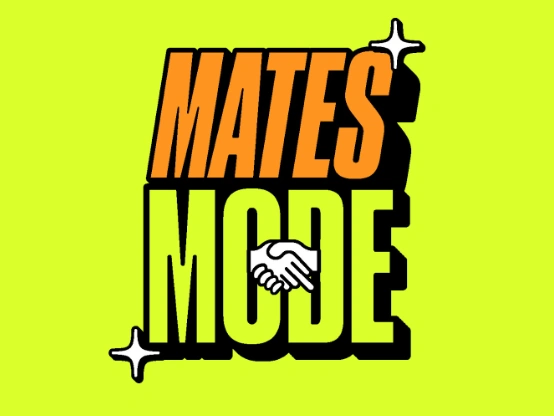How weaponising your friend group works
What's the Tactic?
Sports betting agencies are masters at leveraging social dynamics, employing what can feel like a "Jedi mind trick" to encourage more frequent and higher-stakes betting. This tactic taps into fundamental human desires: to fit in, to be part of a group, and to feel validated by peers. By turning betting into a perceived shared experience, rather than a solitary act, companies can use your friends against you, a truly dark side of gambling promotion. A prime example is the rise of features like "Mates Mode" or group betting options on platforms.
Why Does It Work?
The effectiveness of social proof in sports betting is multifaceted, preying on our innate social tendencies:
- Peer Influence and Normalisation: People are inherently more likely to try or continue a behaviour when they see their friends or social circle doing it. This creates a powerful sense of normalisation, making betting seem like a regular, harmless activity, especially among younger bettors who often seek connection and identity through shared experiences. When "everyone is doing it," resistance weakens.
- Fear of Missing Out (FOMO): Features like "Mates Mode" amplify FOMO. The peer visibility of others' bets and wins, combined with social validation, encourages participation to avoid feeling excluded from shared excitement or perceived success. The fear of missing out on group banter, a shared win, or simply being "out of the loop" can be a powerful motivator to place a bet.
- Intensified Emotions & Shared Experiences: Group dynamics amplify both the highs and lows of betting. Wins are celebrated together, fostering a sense of collective triumph, while losses are often softened by group banter or shared disappointment. This collective emotional experience can make betting more engaging.
- Reduced Perception of Risk: Betting as a group or pooling money can create a diffusion of responsibility, where no single individual feels fully accountable for the outcome. This can subtly lower the perceived risk of gambling, as the weight of potential loss feels distributed among the group, making larger or riskier bets seem more palatable.
- Gamification and Friendly Competition: Group features often introduce elements like leaderboards, shared "Pots," or tip-sharing. These gamified elements transform betting into a perceived "game" with friends, where the focus shifts from financial risk to friendly competition and bragging rights, further obscuring the true nature of gambling.
- Habit Formation via Social Rituals: When betting becomes intertwined with social rituals (e.g., “Saturday bets with the boys” or pre-game group discussions), it helps form ingrained habits. These social rituals make it harder to disengage, as quitting betting would mean missing out on significant social interaction.
- Familiar Digital Behaviours: The design of "mates groups," chat functions, and content sharing within betting apps often mimics popular social media platforms like WhatsApp, Discord, or Instagram. This familiarity makes engagement feel natural and intuitive, drawing users deeper into the betting ecosystem.
What's the Impact?
The impact of social proof and belonging tactics is significant, increasing both the frequency and amount of money gambled, often through subtle manipulation.
- Increased Spending & Frequency: By fostering a social environment, platforms encourage users to bet more money, more often, to keep pace with their peers or maintain their presence within the group.
- Normalisation of Risky Behaviour: When betting is normalised within a social circle, it can desensitise individuals to the inherent risks. Research shows that social contexts can lead to an increased risk of engaging in problematic gambling patterns (see Further Reading).
- Pressure to Conform: Individuals may feel direct or indirect pressure to participate in group bets, even if it exceeds their personal limits or budget, simply to maintain social standing or avoid exclusion.
- Escalation of Harm: For vulnerable individuals, the constant social visibility and pressure can accelerate the development or worsening of gambling problems. The shared experience can mask individual accountability, making it harder for someone to recognise their own escalating issues.
What to Watch For
Be aware of how betting platforms are trying to leverage your social connections:
- "Mates Mode" or Group Betting Features: Any feature designed to connect your betting activity with friends or a social group.
- Leaderboards or Publicised Wins: If you see "top bettors" or friends' large wins highlighted, this is designed to make you feel you could be next, or that you should be participating more.
- Social Media Integration: Platforms encouraging you to share bets or wins on your personal social media.
- Feeling Pressured: If you feel a subtle (or not so subtle) urge to bet because your friends are doing it, or to avoid missing out on group chat.
Remember, these tactics are sophisticated, and they are designed by experts to influence your behaviour.
You’re not alone, and it’s not on you. These tactics are designed to keep you betting, but you can take back control. Head to beingplayed.info or call 0800 664 262 for free, confidential support.
Further Reading:
- Russell, A. M. T., Hing, N., Newall, N. E., & Vitartas, P. (2022). Social Influences on Gambling Behaviour: A Systematic Review. BMC Public Health, 22(1), 748.

